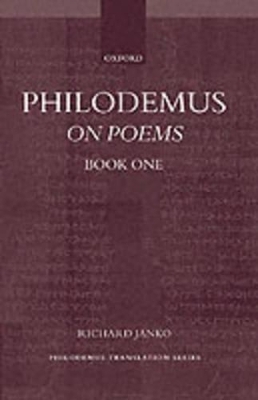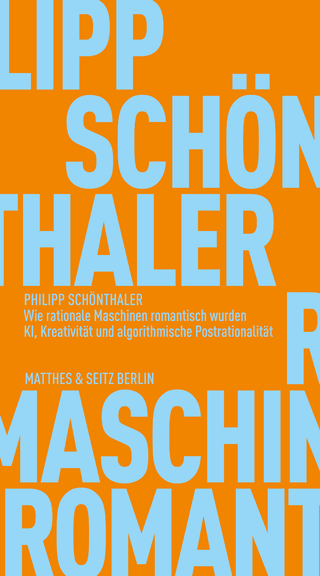
Philodemus: On Poems, Book 1
Seiten
2001
Oxford University Press (Verlag)
978-0-19-815041-1 (ISBN)
Oxford University Press (Verlag)
978-0-19-815041-1 (ISBN)
In 'On Poems by Philodemus', a Greek philosopher and poet who influenced the poets of Augustan Rome, is our main source for the literary theory of the Hellenistic Age. In Book 1, the first volume in a series, Philodemus summarises several previously unknown poetic theories.
The On Poems by Philodemus (c. 110-35 BC), the Epicurean philosopher and poet who taught Virgil and influenced Horace, is our main source for Hellenistic literary theory. In Book 1 Philodemus summarizes a survey of previously unknown poetic and aesthetic theories. Compiled by Crates of Mallos this survey reviews the critical theories of earlier Epicureans, Peripatetics, and Stoics, who argued in some way that sound is the source of poetic excellence, and that the ear, unaided by the mind, can judge it. Philodemus led the reaction against this invasion of Hellenistic literary criticism by musical theory, arguing that form and content are interrelated, and that substantive content, not pretty sound, is what makes poetry worthwhile.
The 200 fragments of Book 1 were entirely jumbled after its discovery at the site of Vesuvius' destruction of Herculaneum. This edition reconstitutes their original sequence, according to a new method, while exploiting previously unknown manuscript sources and new techniques for reading the extant pieces. In thus restoring this important aesthetic treatise from antiquity, it makes a major addition to the corpus of classical literature.
The On Poems by Philodemus (c. 110-35 BC), the Epicurean philosopher and poet who taught Virgil and influenced Horace, is our main source for Hellenistic literary theory. In Book 1 Philodemus summarizes a survey of previously unknown poetic and aesthetic theories. Compiled by Crates of Mallos this survey reviews the critical theories of earlier Epicureans, Peripatetics, and Stoics, who argued in some way that sound is the source of poetic excellence, and that the ear, unaided by the mind, can judge it. Philodemus led the reaction against this invasion of Hellenistic literary criticism by musical theory, arguing that form and content are interrelated, and that substantive content, not pretty sound, is what makes poetry worthwhile.
The 200 fragments of Book 1 were entirely jumbled after its discovery at the site of Vesuvius' destruction of Herculaneum. This edition reconstitutes their original sequence, according to a new method, while exploiting previously unknown manuscript sources and new techniques for reading the extant pieces. In thus restoring this important aesthetic treatise from antiquity, it makes a major addition to the corpus of classical literature.
Richard Janko, Professor of Greek at University College, London, and co-directs the Philodemus Translation Project. He was formerly Professor of Classics at the University of California, Los Angeles.
| Erscheint lt. Verlag | 25.1.2001 |
|---|---|
| Reihe/Serie | Philodemus Translation Series |
| Zusatzinfo | 16pp halftone plates |
| Verlagsort | Oxford |
| Sprache | englisch |
| Maße | 160 x 240 mm |
| Gewicht | 1064 g |
| Themenwelt | Geisteswissenschaften ► Philosophie ► Sprachphilosophie |
| Geisteswissenschaften ► Sprach- / Literaturwissenschaft ► Anglistik / Amerikanistik | |
| Geisteswissenschaften ► Sprach- / Literaturwissenschaft ► Literaturwissenschaft | |
| Geisteswissenschaften ► Sprach- / Literaturwissenschaft ► Sprachwissenschaft | |
| ISBN-10 | 0-19-815041-5 / 0198150415 |
| ISBN-13 | 978-0-19-815041-1 / 9780198150411 |
| Zustand | Neuware |
| Haben Sie eine Frage zum Produkt? |
Mehr entdecken
aus dem Bereich
aus dem Bereich
Macht und Legitimität politischer Sprache im Prozess der europäischen …
Buch | Softcover (2023)
Nomos (Verlag)
74,00 €
KI, Kreativität und algorithmische Postrationalität
Buch | Softcover (2024)
Matthes & Seitz Berlin (Verlag)
16,00 €
Wie die Menschheit zu ihrer größten Erfindung kam
Buch | Softcover (2022)
C.H.Beck (Verlag)
18,00 €


